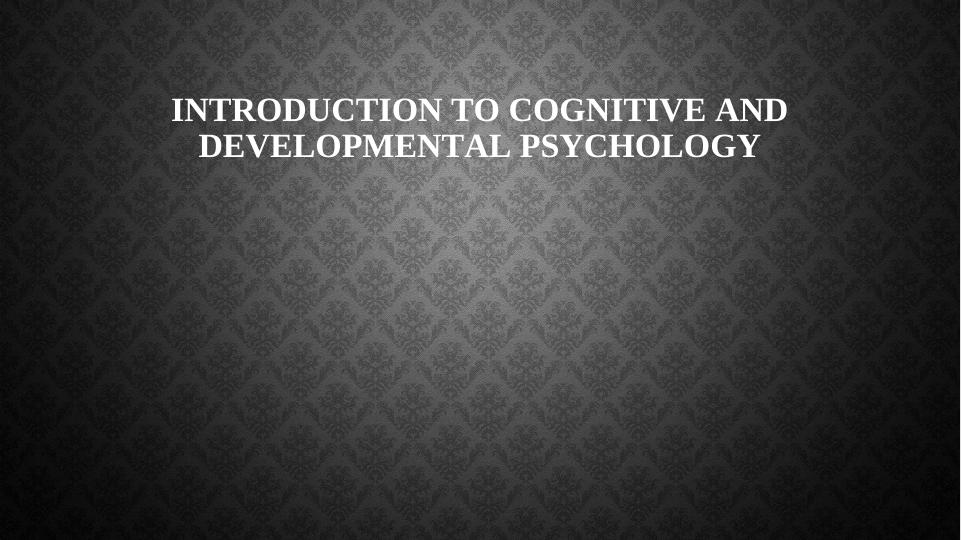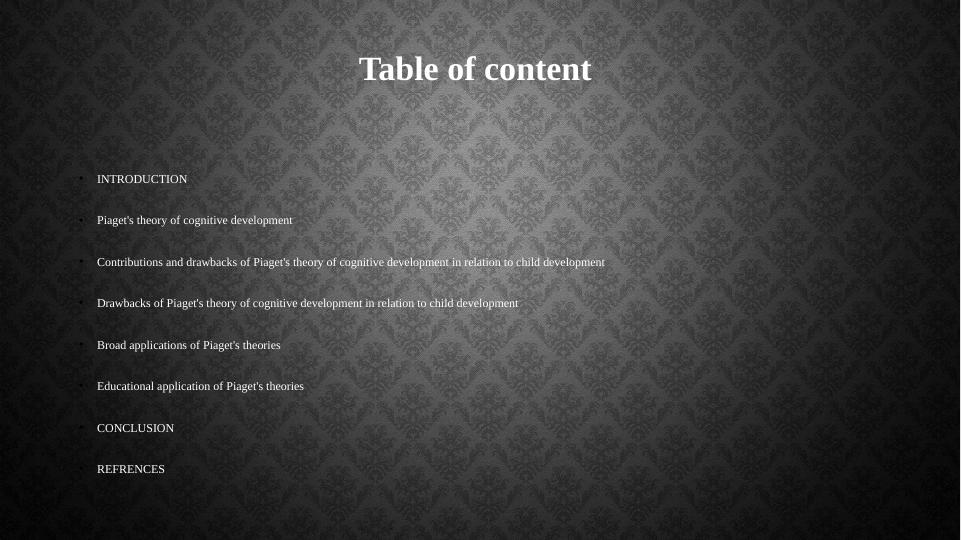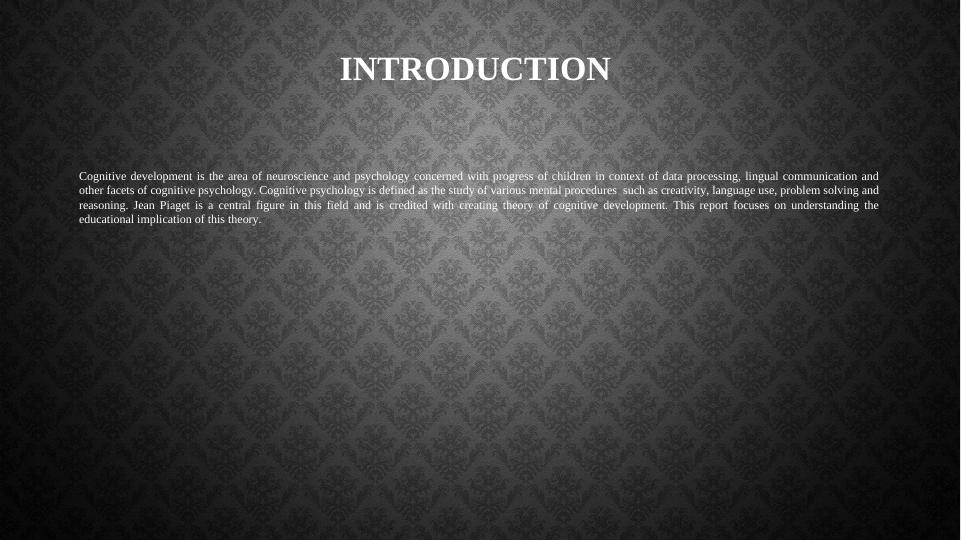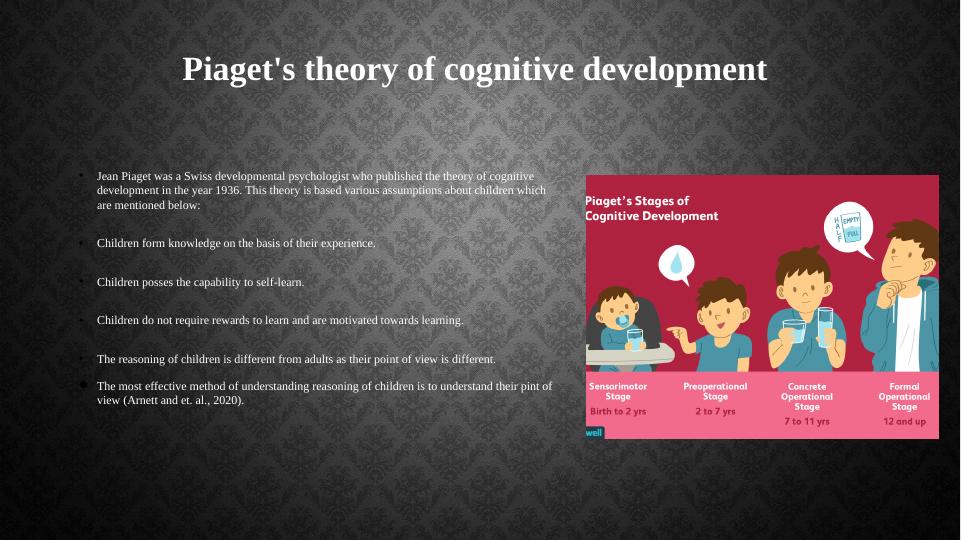Introduction to Cognitive and Developmental Psychology
12 Pages1687 Words399 Views
Added on 2022-12-14
About This Document
This presentation provides an introduction to cognitive and developmental psychology, focusing on Jean Piaget's theory of cognitive development. It discusses the contributions and drawbacks of Piaget's theory in relation to child development, as well as the broad applications and educational implications of his theories. The presentation also includes information on Piaget's four phases of cognitive development and their characteristics. Overall, it offers a comprehensive overview of the topic and its significance in understanding cognitive growth in children.
Introduction to Cognitive and Developmental Psychology
Added on 2022-12-14
ShareRelated Documents
End of preview
Want to access all the pages? Upload your documents or become a member.
Theoretical Perspectives on Physical Development in Children
|4
|1055
|380
Cognitive Development: Piaget's Theory and Stages
|5
|1052
|43
Developmental Theories of Different Ages
|5
|693
|193
The Developmental Stages Across Lifespan | Essay - Desklib
|8
|2084
|188
Cognitive Development: Piaget's Theory and Educational Implications
|9
|1721
|462
Comparing Cognitive Developmental Theory by Piaget and Social Learning Theory by Bandura
|8
|2080
|479




